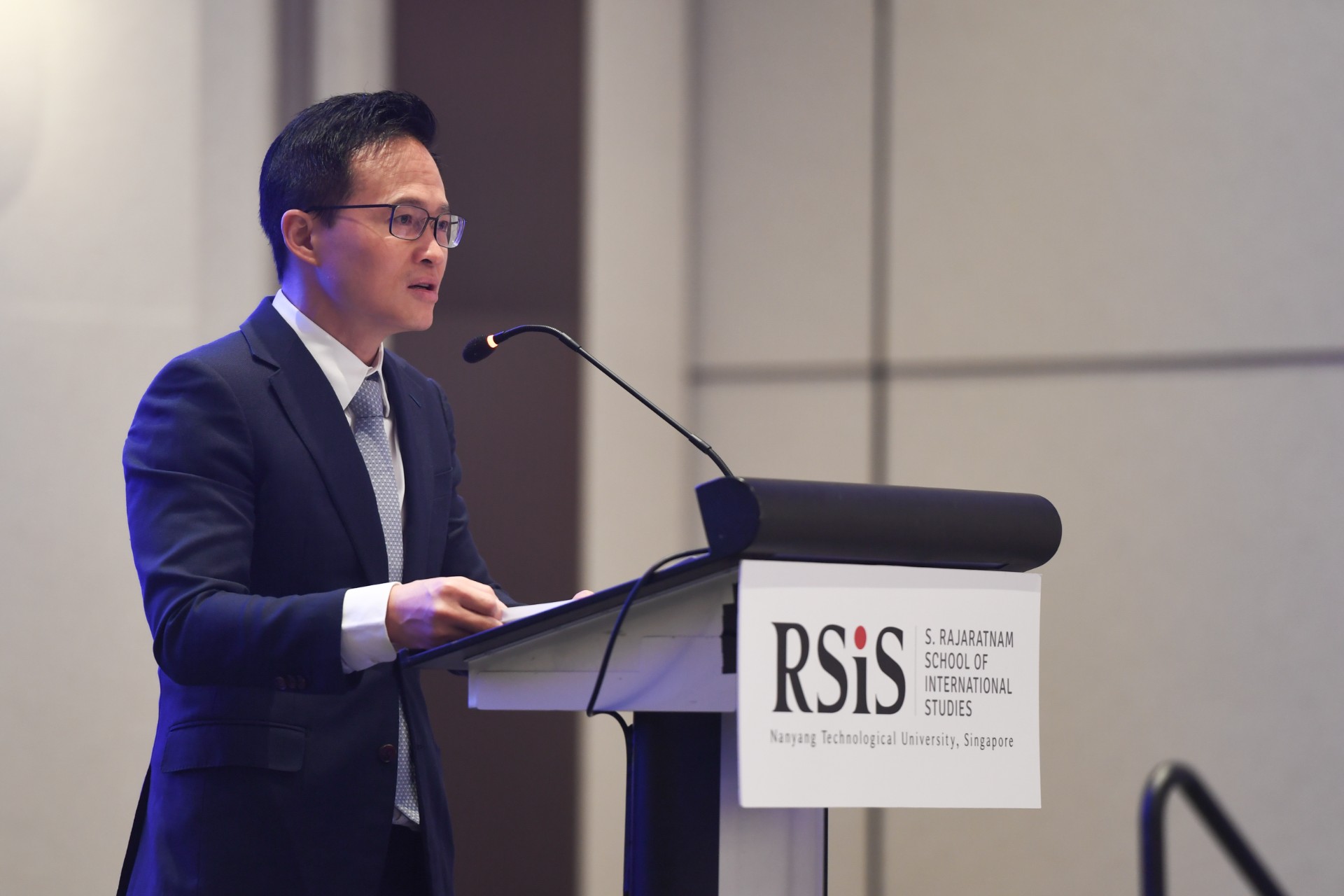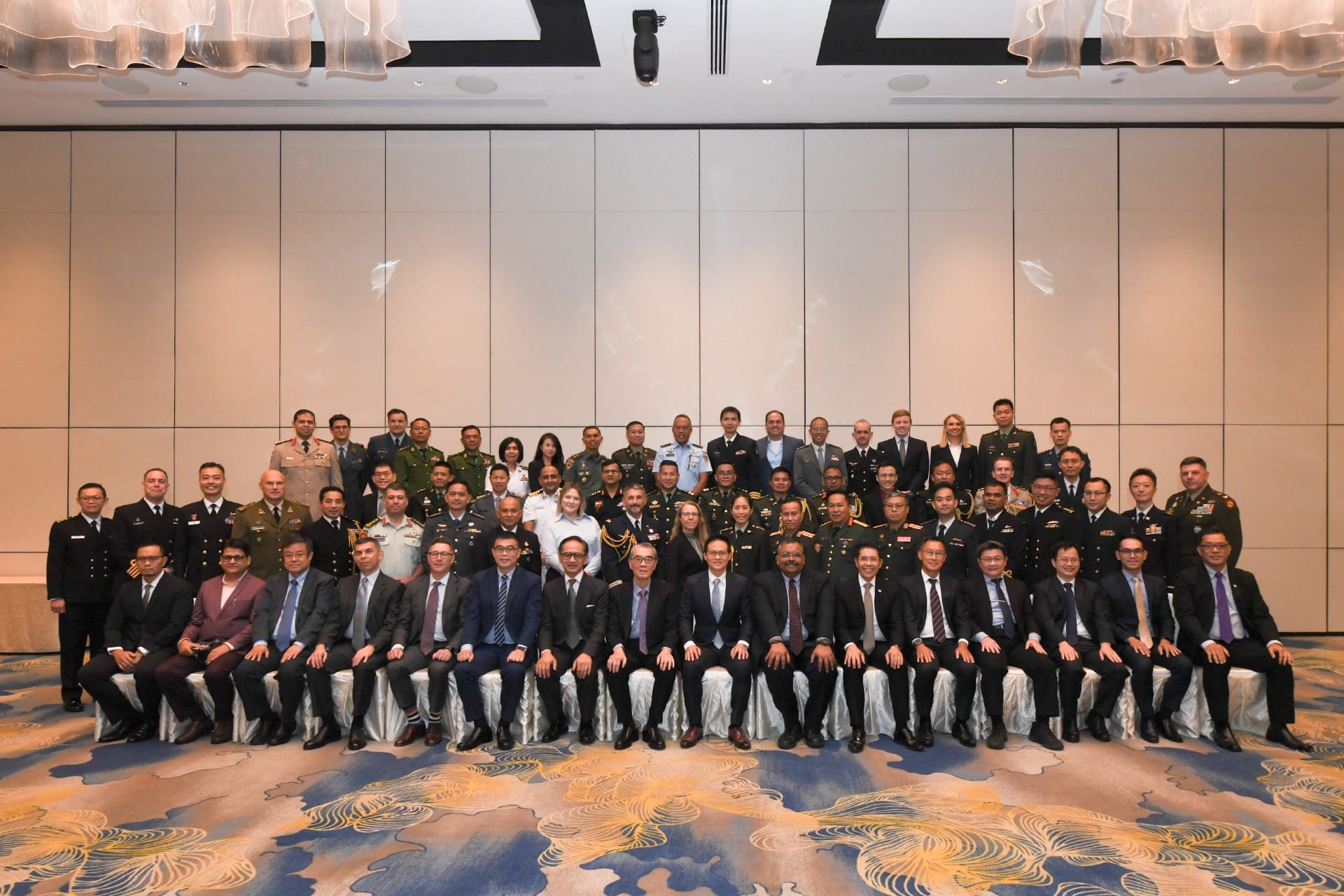Keynote Address by Minister of State Mr Desmond Choo at the 26th APPSMO on 13 October at Grand Copthorne Waterfront
13 October 2025

Distinguished guests, ladies and gentlemen.
Thank you to the S. Rajaratnam School of International Studies (RSIS) for inviting me to address the 26th Asia-Pacific Programme for Senior Military Officers (APPSMO).
It is an honour to speak to such a distinguished cohort, and I am delighted to see this platform continue to thrive.
As you begin your week of exchanges, I would like to offer some of my own thinking on the theme: “Multilateralism as a Bulwark in a Changing Global Environment”.
As we all know, we are living in a period of profound change. The international rules-based order, which has underpinned decades of stability and prosperity, is under immense strain. We are in an interregnum and the transition between the old world order and an uncertain new one. This transition is marked by three critical shifts.
Firstly, in the economic domain, the rules-based multilateral trading system is fraying. For decades, globalisation drove unprecedented growth. Many of the countries represented here have benefitted from globalisation, but the rise in protectionism and nationalism has led to tariff wars and economic uncertainty. Increasingly, we see security concerns overriding market logic in trade and investment, creating a more fragmented global economy.
Second, in the security domain, which many of you are very familiar with, we are witnessing an erosion of respect for international law, including the core principles of sovereignty and territorial integrity. By the last count in 2024, the number of state-based conflicts reached its highest level since the end of World War II. While there is now a prospect of a ceasefire in Gaza – we certainly hope so, that something positive will happen this week – other wars in Ukraine and other parts of Africa show no sign of ending. Upholding the United Nations (UN) Charter is now an uphill task as major power intensify and nations adopt more transactional, zero-sum approaches.
Third, in the technology domain, conflict itself is changing. Emerging technologies are transforming the battlefield and blurring the lines between war and peace. We are not really at war, but we are also not really at peace, according to our Defence Minister, Mr Chan Chun Sing. Artificial intelligence is being tested for autonomous systems. In fact, many of them are being incorporated now. Hybrid warfare, which involves and combines kinetic force with cyberattacks and disinformation, is now commonplace. Without shared norms and guardrails, the risk of miscalculation grows, making our security environment even more precarious.
Seizing Opportunities for Cooperation
These challenges are daunting. Yet, history shows that disruption is often a catalyst for new forms of cooperation. When faced with shared threats that no single nation can overcome, countries can and do find common ground. Even small states and middle powers have the agency to shape outcomes through collective action.
In the economic sphere, we see positive developments like the Future of Investment and Trade (FIT) Partnership, which Singapore helped to launch last month. This is a coalition of fourteen small and medium-sized countries dedicated to keeping trade open, strengthening supply chains, and promoting investment. It is an agile platform for like-minded partners to ensure trade remains an engine for growth.
In the security sphere, even amidst competition, the US and China have shown a willingness to stabilise their relationship and manage areas of friction. But this line, I have changed and changed again, because when I thought it was done, then there is a 100% tariff being imposed. We are not too sure what is happening this week and whether the high-level dialogue will happen in a couple of weeks’ time. But it is what it is. This is something that we all have to deal with, in fact, the uncertainty is the only thing we can trust for certain.
Closer to home, the Five Power Defence Arrangements, or FPDA, remain a pillar of regional security. Already in its 54th year, the FPDA continues to evolve, incorporating advanced assets like the F-35 fighter jets and the UK’s Carrier Strike Group in recent exercises. This demonstrates its enduring value as a transparent, constructive platform that enhances interoperability and contributes to regional security.
Furthermore, platforms like the ASEAN Defence Ministers’ Meeting-Plus (ADMM-Plus) enable practical cooperation between regional militaries and our global partners in areas like disaster relief, maritime security, and cybersecurity. These efforts build the trust and confidence essential to reducing the risk of miscalculation.
In the technology sphere, countries are coming together to develop shared norms. At the ADMM Retreat in February, Ministers committed to strengthening cooperation on artificial intelligence (AI) in defence. This builds on global conversations like the Responsible AI in the Military Domain, or REAIM, summit. Singapore’s active role in these initiatives underscores our belief that we must establish global norms and guardrails for the responsible use of AI in the military.
Of course, effective multilateralism extends beyond governments. We must also draw on the strength of our wider ecosystem—corporates, academia, and civil society. For example, the SAF’s Changi Regional HADR Coordination Centre regularly partners with regional counterparts and humanitarian organisations to deliver relief to communities affected by natural disasters, as it did last year in Laos, Myanmar, and Vietnam.
Dialogue as the Foundation of Cooperation
These examples show that cooperation is indeed possible, even in today’s fractured world, perhaps even more so than ever. The multilateral system, while imperfect, remains our best tool for preserving peace and stability. It gives every country, large and small, a voice that ensures that collective interests are not sacrificed to power politics. The foundation of all cooperation is dialogue. Dialogue between neighbours, partners, and—most importantly—between those who do not see eye-to-eye. In a volatile world, a shared table is often the first and most important line of defence. Even when we agree to disagree, dialogue builds the mutual understanding that prevents disagreements from escalating into conflict.
The value of dialogue is not in just formal treaties or agreements, but also in cultivating the habit of engagement. Regular touchpoints keep lines of communications open and create the strategic trust needed to navigate crises.
History proves this. ASEAN was founded in 1967 not only because of shared interests, but because of the personal bonds built between its founding Foreign Ministers. Today, we see this dynamic at work in platforms like the Shangri-La Dialogue, which allows defence leaders to speak candidly, and in smaller, Track 1.5 settings like the RSIS Trilateral Exchange between the US and Chinese experts. Such forums do not seek to erase differences nor would it be desirable to do so. But they foster stability.
APPSMO plays this vital role. The late President S. R. Nathan once fondly called this gathering a “summer camp”, and I think he was right. APPSMO has grown into a valued platform for senior military leaders from over 40 countries to do something essential: talk to one another. Over meals, discussions, and shared experiences, you build the informal bonds that foster understanding in ways official statements can never do. These relationships may prove, one day, to be decisive for regional stability.
Conclusion
In a world of sharp competition and growing uncertainty, we must remember one simple truth: treaties and agreements are written in ink, but trust is built through conversations and shared experiences. Strengthening multilateral cooperation through open dialogue is our best path forward.
Over the next few days, I encourage you to use this platform not just to exchange views, but to forge the friendships that will serve as the bedrock of our region’s future. In doing so, we can help build a world that is more secure and prosperous for the generations to come.
I wish you all a very meaningful and rewarding week ahead.
Thank you very much and have a good morning ahead.

